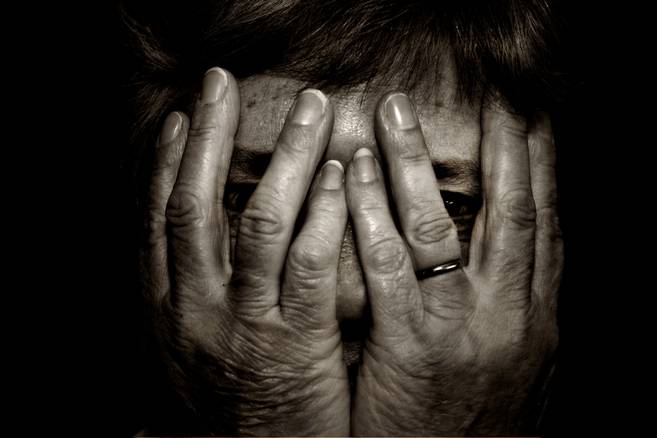
Dr. Joy-El Ballard had not read the recent New York Times story about how women of color may be failed by practitioners who don’t recognize that that population may experience menopause drastically differently than others. She didn’t need to — she’s lived it, both as a patient and as an OB/GYN.
“I was seeing a lot of Black women patients struggling and not really getting their needs met in terms of navigating the condition,” said Ballard, an author and podcaster who no longer practices but, through her business Menopause Moguls, coaches menopausal-aged women to start their own enterprises. “They were being dismissed, blown off, and their needs were not being addressed appropriately.”
According to the findings of the Study of Women’s Health Across the Nation, a project investigating the health of women in midlife and beyond, Black women on average enter menopause 8½ months earlier than white women. They may even have different symptoms altogether that are “more severe and last a lot longer,” Ballard said.
Menopause generally remains a subject that simply isn’t discussed enough — in families, among friends, with physicians and caregivers. In January, I wrote about starting a private Facebook group as a place to discuss perimenopause and menopause symptoms and experiences among peers who can empathize and tell each other we’re not crazy.
“If there’s no conversation, how do you validate your experiences when nobody’s talking about it?” asked Rockville’s Kimberly A. Nelson, a spiritual life coach who also specializes in health and wellness. “My mission is to normalize menopause. It’s a natural phase of life, not a pathology, although it can feel like it in our bodies. No one is talking about it, which is why it feels like that.”
The Times story and the women I interviewed highlight a specific conundrum for women of color. If you don’t talk about your symptoms, you don’t know whether they’re typical. And it doesn’t help if your doctors don’t know that symptoms in their non-white patients are actually symptoms, like the terrible man in the Times article who literally laughed in the face of a Black woman who believed she was starting menopause in her 30s. (She was.)
That doctor, obviously, was useless, but if you don’t have non-white patients, you might not be able to put two and two together, compare their experiences to those of your white patients, and work from there. As recently as 2016, half of white medical trainees believed that Black people had literal thicker skin, meaning they felt less pain, and that they had less sensitive nerve endings, according to the Association of American Medical Colleges. Maddening. But Dr. Useless’ heartlessness makes more sense in that context.
Unlike Ballard, who started menopause early, LaVette Gatlin of Lanham began having perimenopausal symptoms about two years ago, in her early 50s. As a pharmacovigilance scientist who studies the life and efficacy of medications to make sure they’re safe, she said she knows the importance of specificity. “In the field I’m in, when I’m looking at the side effects from clinical trials, trying to characterize risk, it’s important,” she said. “Medical books don’t even have our skin in them. When you’re trying to describe a rash on someone brown, for instance, you may never have seen what it looks like [on them].”
Terresa C., who lives in Baltimore and asked to be identified by her last initial, learned the importance of having a doctor familiar with the specifics of her body, not with a gynecologist but with her younger white eye doctor who, after examining her, “was freaked out thinking I had glaucoma and sent me for all these tests because the nerves in my eyes were too prominent. I got randomly assigned to a Black doctor my age, and he said, ‘Your eyes look like what normal Black people’s eyes look like.’ That first doctor didn’t have enough Black patients to know.”
Now that Terresa believes she’s beginning menopause — “I’ll have crazy symptoms one moment, things are usual the next month and then I have another set of crazy of symptoms the month after that” — she sees only female doctors or women of color. “As I’m getting older, I want someone to understand my medical needs and concerns as a woman,” she said.
There are plenty of competent male gynecologists, and finding a provider of your same gender, race or age doesn’t guarantee better care. But it might make it easier to talk to someone about weird things happening in your body if you think that person might understand your experiences. It’s why I stopped seeing a much younger gynecologist who blithely told me that a solution to my possible vaginal atrophy was to “use it or lose it.” It seemed super flippant and insensitive, given my status as a single mom in the height of the pandemic. Honestly, it’s not something you might say if you were facing it.
Sign Up for Alerts
Get notified of need-to-know
info from The Banner
Doctors are human, and their word and advice are not sacrosanct. We have to ask questions to make sure that we are being heard, and go elsewhere — if we can — if we are not. Nelson suggested that if patients are comfortable, they should explore naturopaths and other non-traditional practitioners.
For the moment, I’m sticking with traditional medicine. I’m actually going to see a brand new Black female gynecologist this week, driving about 35 minutes away because that’s what I had to do to find someone I think I can talk to.
But whoever we see, what we can’t do is keep silent about our pain anymore.
We’ve got to scream it if we have to.




